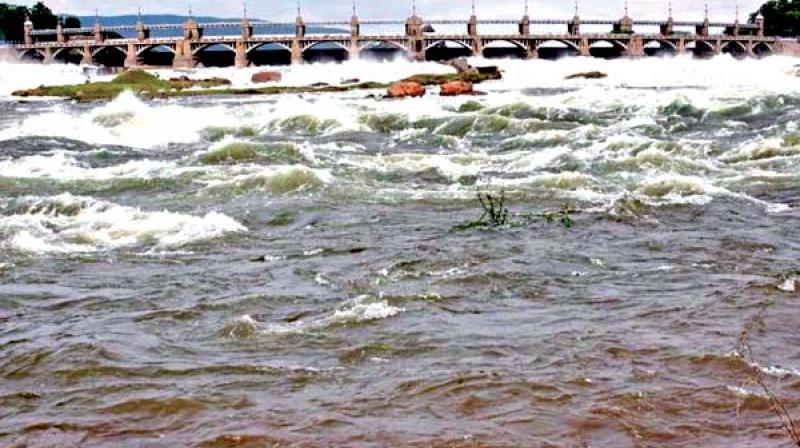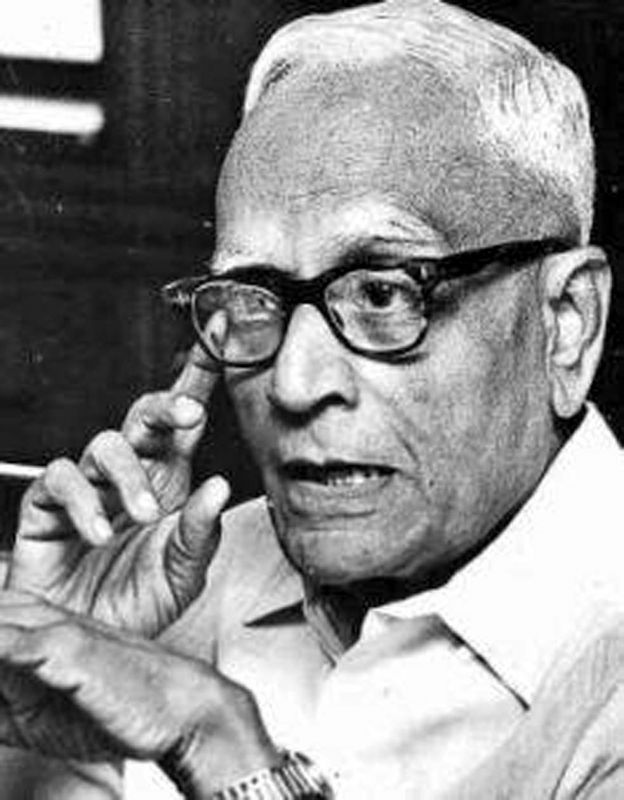Cauvery: Tamil Nadu driven to wall again, but conciliation seems only way
TN immediately needs at least ten to 15 tmcft of Cauvery water to save the perilously standing samba' paddy crop in the delta areas.

CHENNAI: The Supreme court had declared in January that it would deliver in a month its verdict on the appeals by Karnataka, Tamil Nadu and Kerala against the 2007 final award of the Cauvery Water Disputes Tribunal (CWDT).
Irrespective of which way the apex court verdict would go, Tamil Nadu immediately needs at least ten to 15 tmcft of Cauvery water to save the perilously standing ‘samba’ paddy crop in the delta areas.
Just when Chief Minister, Mr. Edappadi K Palaniswami gave a late, but yet welcome nudge for talks with his Karnataka counterpart, Mr Siddharamaiah, and sought an appointment with him, the Deputy Chief Minister, Mr O. Pannerselvam disclosed in Thanjavur on Friday that as no time for the meeting was given, the state would move the Supreme court again to get the urgently required quantum of Cauvery water from Karnataka.
All this seems a classic replay of ‘Catch-22’ situation. For all the legal solidity of a judicial verdict when time is of the essence to save standing paddy crop in dire need of water, conciliation between the basin states is still not a bad way out for any good outcome could always be reported back to the apex court. However, some experts do feel that going on appeal against the ‘final award’ of the CWDT itself tacitly discounted its long and laborious work for over two decades and repugnant to the spirit of the Inter-State Water Disputes Act under which the tribunal was constituted, and that too on a directive by the Supreme Court 1990.
If the principal basin states in this dispute, particularly Karnataka and Tamil Nadu, are not to become what the eminent economist and a former adviser to the Chief Minister of Tamil Nadu, late S Guhan said, “prisoners of history”, it is equally imperative that the long-drawn dispute is not made a permanent hostage to the political climate in the respective States. There is no better moment than now to try and depoliticise the Cauvery river water sharing issue, particularly in the backdrop of the need to set up the ‘Cauvery Management Board (CMB)’ that could take technical, professional decisions after weighing all ground factors.
 S. Guhan
S. Guhan
While Karnataka’s latest reticence to re-open long frozen negotiations with Tamil Nadu – partly fallout of the earlier J Jayalalithaa-led AIADMK regime’s rigid legalistic approach to this issue - comes as no surprise, it is clearly the ensuing Karnataka Assembly polls that would stall any prospect of Cauvery water release this year, making it another washout crop season for Tamil Nadu farmers. The increasing oil exploration activities in the delta area seem to add only fuel to fire.
However, in the larger interests of both the States – just as the annual water requirements of India’s IT capital of Bengaluru cannot be lost sight of, similarly the unique ecology and productive potential of the Cauvery delta spread in the lower riparian state of Tamil Nadu as an “ideal rice growing bowl” in the South should not be ignored either in the interests of food security - there is a greater need today to appreciate the larger dimensions of the dispute.
It is in this context that the conciliation approach, alongside legal options that are being explored, advocated by late Guhan, in his outstanding monograph, “The Cauvery River Dispute: Towards Conciliation” is still very relevant during our troubled times. The tribunal’s interim award said 205 tmcft of annual inflows of Cauvery water should be made available by Karnataka for Tamil Nadu at Mettur reservoir, even as the final award pegged this quantum lower at 192 tmcft. Yet, a “satisfactory solution” continues to elude the parties due to rigid, past positions.
Referring to the controversies the interim award had created and their political fallout on both sides, particularly the difficulties in stipulating “monthly pattern of releases”, Prof Guhan has pointed out that a “more appropriate approach would be to arrive at the allocation for Tamil Nadu (including Pondicherry) on the basis of a share (i.e., a percentage or ratio) in the yield above Mettur and to formulate rules of regulation, to effectuate the realisation, taking one year with another, of the specified share.”
Illustrating his case in the monograph, Prof Guhan has said, if the tribunal decides to allocate ‘X’ tmcft of water to Tamil Nadu in the form of annual inflows into Mettur reservoir, and if ‘Y’ tmcft is the ‘assessed annual yield above Mettur’, then the annual water entitlement to Tamil Nadu instead of being ‘X’ tmcft of water in terms of a quantum, could be specified as ratio of ‘X/Y’ share in the total yield above Mettur for Tamil Nadu. This way, both States would benefit in good monsoon years and lose out in “bad years as per their relative shares in allocation.” “There will be no room for controversies relating to prior or overriding claims and reciprocity will be built into the arrangements”, he argued.
Prof Guhan further shows that Tamil Nadu being “steadfastly stuck to legal claims based on 1892 and 1924 Agreements”, and Karnataka insisting that the earlier Agreements were ‘unequal’ due to historical compulsions (as those accords were between the then British-ruled Madras Presidency and erstwhile Princely state of Mysore), and post-Independence, Karnataka taking aggressive stands as an upper riparian state saying, “Cauvery waters are our waters”, have only been grist to political mills on both sides. It makes good politics, but bad agriculture economics.
Hence, Prof Guhan argues that a way out of this impasse of “irreconcilable positions” is to “seek a reasonable modus vivendi, based on considerations of fairness and equity, related to historical entitlements as well as current realities. Fortunately the (Internationally accepted) Helsinki Rules offer a constructive framework; by jointly subscribing to them, both States can facilitate the tribunal, adopting the middle path suggested above.”
The ‘Helsinki Rules’ in this instance would entail that while Karnataka’s new aspirations are respected, the interests of Tamil Nadu and Pondicherry in the “protection of their established irrigation” is also respected, besides Kerala’s interests.
Technical experts from the basin states will have a key role in this consultative process to enable final closure of the legal process in the backdrop of the tribunal’s final award.
It is now 20 years since Prof Guhan passed away and it is important to remember him for this contribution, alongside those of veteran technical experts like S Y Krishnasamy, V C Kulandaiswamy, A Mohanakrishnan, S.P. Namasivayam and Dr P.M. Natarajan.
